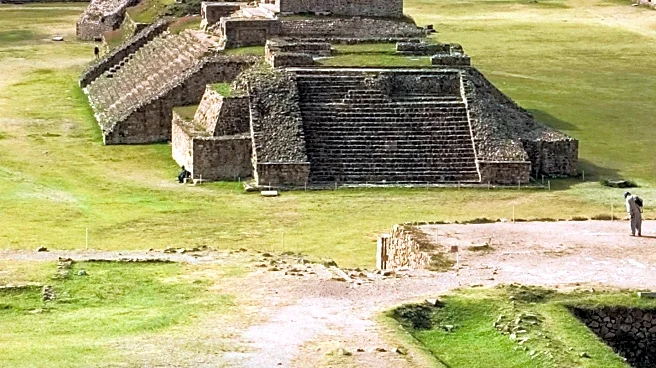What's Happening?
New archaeological research suggests that the Monte Sierpe site in the Andes, consisting of approximately 5,200 aligned holes, may have functioned as an Indigenous system of accounting and exchange under
the Inca Empire. The site, known as the Band of Holes, dates back at least 700 years and was initially hypothesized to serve as a barter marketplace. Drone mapping and sediment analyses revealed numerical patterns and ancient pollens, indicating the site's use for depositing goods. The organization of Monte Sierpe parallels the structure of Inca khipu devices used for record-keeping, suggesting its role in Indigenous accounting practices.
Why It's Important?
The discovery of Monte Sierpe's potential function as an accounting device offers insights into the economic and administrative systems of the Inca Empire. It challenges previous assumptions about pre-Hispanic societies, highlighting their sophisticated methods of resource exchange and management without currency or writing systems. Understanding these practices provides valuable context for studying the development of large-scale societies in the Andes and their impact on regional history and culture.
What's Next?
Further research and analysis of Monte Sierpe may uncover additional details about its role in Inca society and its connection to other archaeological sites. Continued exploration of Indigenous accounting systems could enhance our understanding of pre-Hispanic economic practices and contribute to broader discussions on cultural heritage preservation. Collaboration between archaeologists and local communities will be essential for advancing research and protecting the site.
Beyond the Headlines
Monte Sierpe's discovery raises questions about the complexity of Indigenous knowledge systems and their contributions to global history. It underscores the importance of reevaluating historical narratives to recognize the achievements of non-Western societies. The site also highlights the need for ethical considerations in archaeological research, including respecting Indigenous perspectives and ensuring equitable access to cultural heritage.










